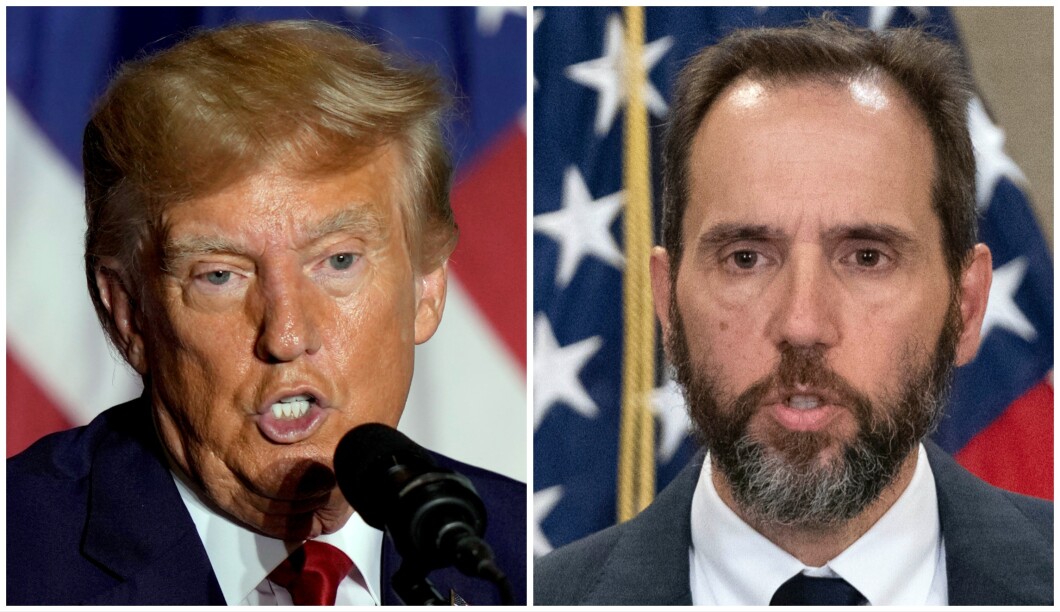
Attorneys for Donald Trump and Jack Smith will face off Monday before a three-judge panel over whether a gag order restricting Trump’s speech in the election subversion case in Washington, D.C., violates the former president’s First Amendment rights.
The judges, two Obama appointees and one Biden appointee, will hear 20 minutes of oral arguments from both parties at 9:30 a.m. in Washington’s federal appeals court.
TRUMP’S BIGGEST ACCOMPLISHMENT COULD ALSO FUEL HIS 2024 DEFEAT
The court issued a temporary administrative stay on the gag order this month while it considers Trump’s appeal, and while it is unclear when the panel will make a final ruling on it, the court has indicated it plans to move expeditiously to address the matter.
Originally issued by U.S. District Judge Tanya Chutkan on Oct. 17, the gag order banned parties in the case from making any public statements that “target” Smith or his staff, defense attorneys or their staff, court staff, and “any reasonably foreseeable witness or the substance of their testimony.”
Chutkan has justified the controversial order through court filings, saying that certain comments Trump has made, often through his social media platform, Truth Social, risk having the effect of intimidating witnesses in the case and provoking imminent physical threats against those involved in it.
Chutkan has said these concerns supersede Trump’s right to free speech and that the gag order is narrow enough to withstand First Amendment tests.
Trump and Smith filed briefs ahead of Monday’s arguments outlining how they plan to approach their positions on the order.

Attorneys for Trump, the leading Republican presidential candidate, wrote that “silencing a Presidential candidate’s core political speech at the height of his political campaign is the ‘essence of censorship.'”
They argued the order is overbroad and “suppresses a wide range of core political speech that presents no plausible threat to the administration of justice.”
And while Trump has waged frequent online attacks against his political and legal enemies, repeatedly lobbing words such as “deranged,” “radical,” “racist,” “disgrace,” “monster,” “thug,” “corrupt,” and “incompetent” at them, his attorneys argued prosecutors have been unable to correlate a single serious threat with them directly.
Prosecutors working on behalf of Smith, who is leading the case against Trump alleging he illegally attempted to overturn the 2020 election, pointed to a Truth Social post Trump wrote right after Smith indicted him to illustrate that Trump’s rhetoric had resulted in serious threats.
“IF YOU GO AFTER ME, I’M COMING AFTER YOU!” Trump wrote in the post.
The prosecutors said that one day later, a Trump supporter called the district court and said, “Hey you stupid slave n***** … If Trump doesn’t get elected in 2024, we are coming to kill you, so tread lightly, bitch. … You will be targeted personally, publicly, your family, all of it.”
They argued, “That episode was part of a pattern, stretching back years, in which people publicly targeted by the defendant are, as a result of the targeting, subject to harassment, threats, and intimidation.”
CLICK HERE TO READ MORE FROM THE WASHINGTON EXAMINER
They also said the court “has the power to act” when a party in the case has attempted to influence that case with extrajudicial statements related to witnesses. They specifically cited examples where Trump criticized his former chief of staff Mark Meadows and his former vice president, Mike Pence.
Numerous Republican attorneys general, the Trump-friendly legal group America First Legal, and, in a surprising turn, the Democratic-aligned American Civil Liberties Union have all argued in favor of eliminating or narrowing the gag order’s restrictions.





